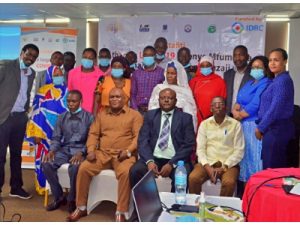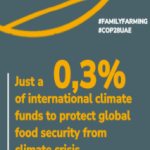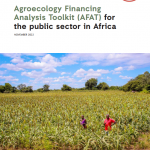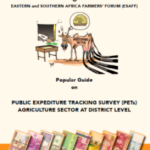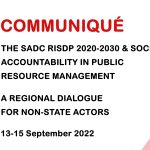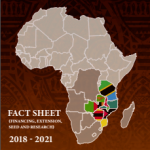Stakeholders ask Government to lower tax for COVID-19 PPE
STAKEHOLDERS have requested the government to consider reducing taxes on coronavirus personal protective gear for all citizens to afford them. When the cost of some Covid-19 personal protective gear such as masks, hand sanitisers is low, all citizens will be able to take an active part in protecting themselves from the deadly virus.The request was made by The Eastern and Southern Africa small-scale Farmers Forum (ESAFF) coordinator, Joe Mzinga at a one-day workshop on the Impact of Covid-19 on Food Production, Transport and Marketing systems in Africa. The workshop brought together various stakeholders including farmers, grain traders, food traders (baba na mama lishe) ministries, marketing officers, drivers and fishermen. Mzinga said they conducted research and found that the effects were due to the overcrowding of sellers and buyers in markets such as Mabibo, Temeke Stereo and Ferries and the lack of stalls to enable sellers and buyers to gain space (social distancing).
In addition, the lack of services such as body temperature measurements at market entrances and the lack of running water infrastructure in many markets to cater to buyers and sellers. Lack of specialised places to provide food services and high cost of telecommunications and transportation also lack an online marketing system to enable consumers to buy goods via the internet. However, they suggested the existence and maintenance of internet marketing to reach out to farmers and buyers by constructing modern markets in more places, especially for farmers, to have a lower price for mobile phones so that farmers can afford the cost of doing business through the internet.
In addition, they recommended the construction of barracks (vizimba) to enable retailers and buyers to have social distancing, set up services such as body temperature measurements at market entrances and build flow water infrastructure in many markets to provide the services to buyers and sellers. Coordinator Mzinga said the aim of bringing these stakeholders together is to exchange ideas with them and get their suggestions on what can be done to address the impact of tensions on the whole issue of food security. Mzinga explained that thecurrent food situation with about 45 million people in ten countries is facing food shortages due to the effects of the drought caused by the ban on exports or travel, drought and economic stagnation caused by the floods. “This report is according to SADC and the World Food Program (WFP) and as a result, the situation has led to inflation, rising food prices and unemployment,” Mzinga said. Mzinga said between November and December to May 2021 ESAFF conducted in-depth interviews with stakeholders in Temeke Stereo markets, Mabibo market, Ferry fish market, and Tandale grain market, and Pugu abattoirs in Dar es Salaam. The report found that markets were affected by low food supply during the Covid-19 peak in March-May 2020.
Author: DAILY NEWS Thursday July 15

















